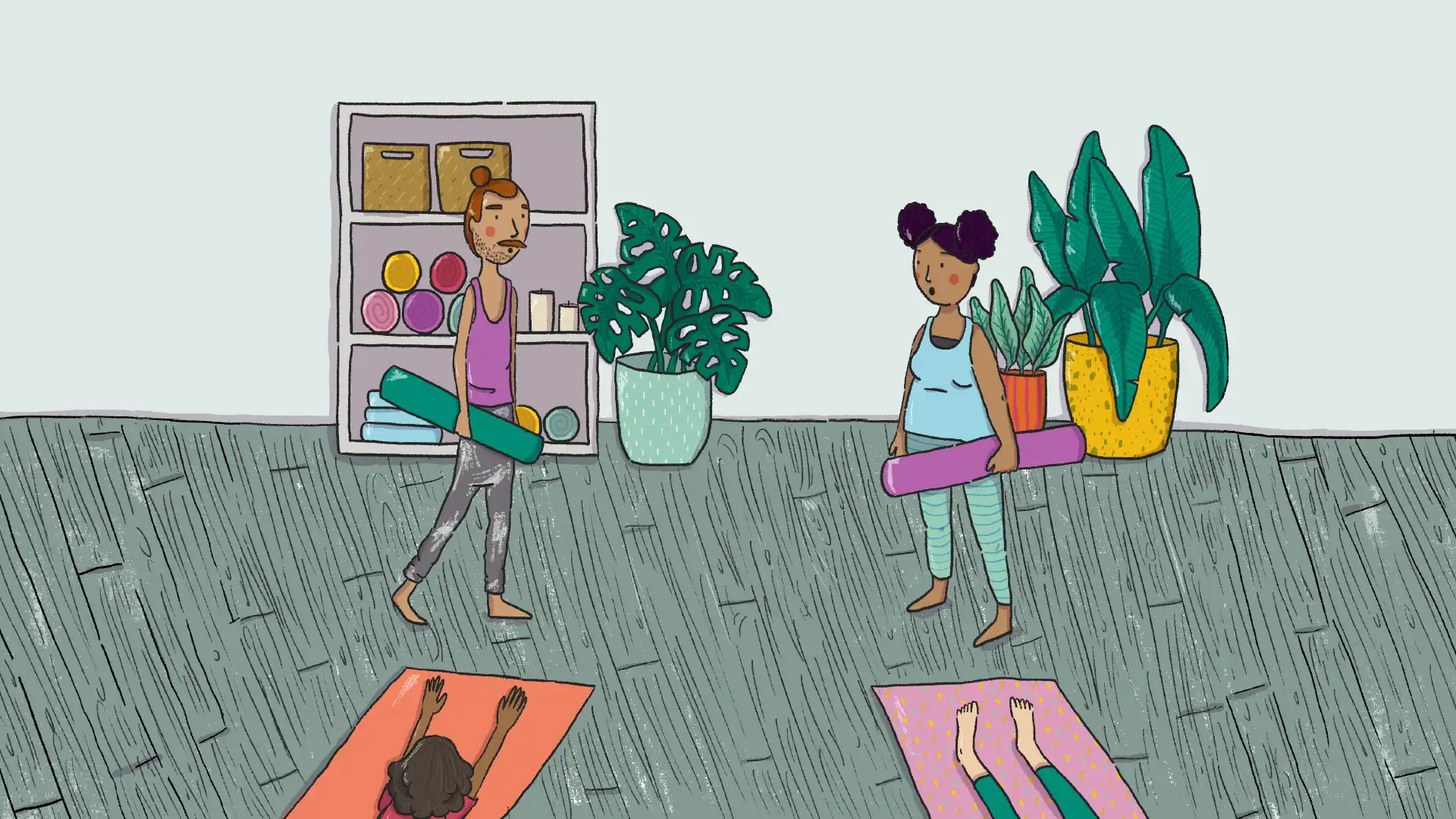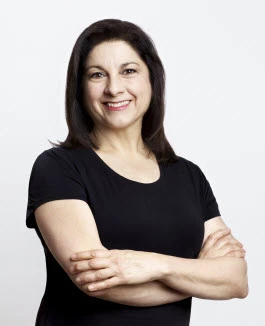That’s My Spot! Non-attachment on the Yoga Mat

Article At A Glance
Lynn Crimando’s delightful article about non-attachment pokes some light-hearted fun at yogis who think they own “their” spot at yoga class and other lessons we can all improve on.
Last week, a new student came into class and began arranging her mat and props on the floor in a somewhat tentative manner. This class is ongoing, and most of the attendees are regulars. Although the atmosphere in all of my classes is low-key and friendly, it can intimidate anyone to be a newcomer to a group of people who obviously know and like each other.
As each person entered, the newbie, concerned about disrupting the normal order, asked whether she had taken their spot. “Ah, yes,” I thought. “The spot.” Attend enough yoga classes, and sooner or later, you are bound to hear, “Excuse me, but you’re in my spot.” This directive will be either aimed at you or someone else, often delivered in an authoritative voice that implies some “alpha yogi” status. It’s as if regular class attendance affords one the automatic right to a specific bit of real estate on the studio floor.
One of the eight limbs of yoga is a set of five moral guidelines called the Yamas. These principles comprise an ethical compass to help us navigate our way in the interconnected world. The fifth of these, Aparigraha, speaks to the principle of non-attachment or non-possessiveness. It cautions us not to cling to things that are not useful, necessary, or important. In other words, it’s cueing us not to stress the small stuff, such as where to stand during a one-hour class.
I was most gratified that day to hear person after person reassuringly welcomed the newcomer and invite her to stay put. But I could not resist the urge to weigh in.
I Did Not Want This Moment to Pass Unnoticed

I addressed the class by saying that I’d heard the question being posed and was pleased by the responses. I also wanted to offer a global answer because of the perfect opportunity it offered for a quick hit of svadhyaya – a Sanskrit term drawn from another limb of yoga called the Niyamas, which are practices we can use to cultivate our inner integrity and wisdom. Svadhyaya is a process of self-study or self-observation.
I told them about the principle of non-attachment and how we imperfect humans can drive ourselves to distraction by worrying about things that don’t actually matter. Observing ourselves in these moments can give great insight into what’s truly important.
“If you are coming into yoga class with the need to stand in a certain spot,” I said, “you’re not getting the yoga.” A few immediate glimmers of recognition were followed by a bit of chuckling. “If we become attached to something as inconsequential as where to stand in yoga class,” I continued, “think of all the equally unimportant things large and small that we form attachments to over the course of a 24-hour day. To catch ourselves in those moments and begin to let go of the things that don’t serve us–That’s the real practice of yoga.”
There was a moment of silence as my words landed, and then two people promptly picked up their mats and switched places on the floor. We all laughed, high-fived the brave two, and began our practice, happy to celebrate the idiosyncrasies and foibles that tie us together and make us human.
What about you? Can you think of an example where you’ve witnessed yourself or another holding on for dear life to something of no consequence whatsoever? We can all learn from each other!
Reprinted with permission from YogaLynn.com
Read more about the Niyamas with YogaUOnline and writer Christine Malossi – The First Niyama: Saucha

Lynn Crimando, MA, serves as the teaching mentor for YogaUOnline's Wellness Educator Program. She is a yoga teacher, C-IAYT Yoga Therapist, board-certified Health and Wellness Coach, and a Buteyko Practitioner. She has a private practice in New York City and teaches classes throughout the city on behalf of Health Advocates for Older People. In addition, Lynn is on the faculty of the IAYT-approved Yoga Polarity Therapist Training in Malverne, New York. To learn more about Lynn, visit her website: yogalynn.com.



